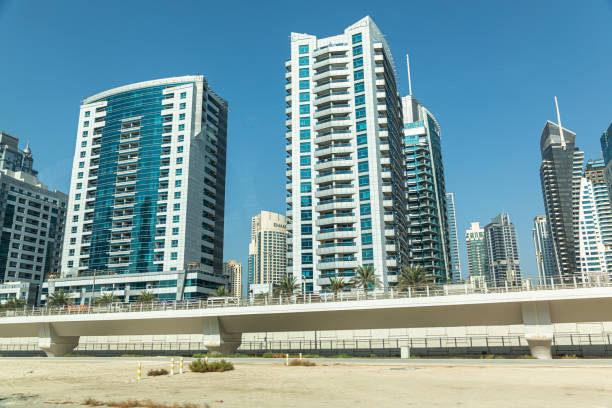When considering a personal loan in the UAE, understanding the eligibility criteria is crucial. These loans offer financial flexibility, but not everyone qualifies. This article delves into the key eligibility requirements, documentation, and factors that influence loan approval in the UAE. Whether you’re a long-term resident or a recent expatriate, this guide will help you navigate the complexities of securing a personal loan in this dynamic financial landscape.
Basic Eligibility Criteria for Personal Loans in the UAE
Minimum Age Requirement
The journey to obtaining a personal loan in the UAE begins with age eligibility. Typically, applicants must be between 21 and 65 years old. However, this range can vary slightly depending on the lender. It’s essential to check the specific age requirements of each financial institution as they assess maturity and financial stability based on age.
Employment and Income Standards
A stable job and a regular income are non-negotiable for most lenders in the UAE. The criteria differ for salaried and self-employed individuals. For salaried employees, the focus is on job stability and employer reputation. Self-employed applicants, however, must demonstrate a stable business income. The minimum income requirement also varies among banks but usually starts around AED 3,000 to 5,000 per month. In this context, a common question arises: “how much personal loan can i get on my salary in uae?”The answer largely depends on your income level, as most banks offer a loan amount that is a multiple of your monthly salary.
Documentation Required for Personal Loan Application
Identification and Residency Proof
To apply for a personal loan, you’ll need valid identification and proof of residency. This typically includes:
- Emirates ID for UAE nationals.
- Passport and visa for expatriates.
Some banks might require additional documents, like a utility bill, to verify your residency.
Income and Employment Verification
Proving your financial stability is key. The required documents generally include:
- Recent salary slips or bank statements for salaried individuals.
- Financial statements or business proofs for self-employed applicants.
Each bank has its own checklist, so it’s advisable to consult with your chosen bank for specific requirements.

Credit Score and Financial History
Role of Credit Score in Loan Approval
Your credit score in the UAE plays a pivotal role in determining your loan eligibility. This score reflects your credit history, including past loans, credit card repayments, and financial behavior. A higher score increases your chances of approval and possibly even better interest rates. For individuals pondering how to get personal loan in uae, a good starting point is to ensure that your credit score is in good standing.
Improving Your Credit Score for Better Eligibility
If your credit score isn’t where it needs to be, consider these steps:
- Timely repayment of existing loans and credit cards.
- Limiting the number of credit applications.
Regular monitoring and responsible credit behavior can gradually improve your score.
Additional Factors Affecting Eligibility
Debt-to-Income Ratio
The debt-to-income ratio is a critical factor in the approval process. It represents the portion of your income that goes towards debt repayment. Ideally, this should not exceed 40-50% of your monthly income. Maintaining a lower ratio demonstrates your ability to manage and repay new debt.
Existing Loans and Liabilities
Your current financial obligations, like existing loans or credit card debts, directly impact your eligibility. Banks assess your existing liabilities to ensure you have the capacity to take on additional debt. This assessment is particularly important for those wondering “”where can i borrow money in uae,”” as it influences where and how much you can borrow.
Types of Personal Loans and Their Specific Eligibility Criteria
Secured vs Unsecured Loans
The eligibility criteria for secured and unsecured loans in the UAE differ significantly. Secured loans require collateral, such as property or a car, and generally have more lenient eligibility requirements. Unsecured loans, on the other hand, rely solely on your creditworthiness and often have stricter criteria. The personal loan interest rate in dubai for unsecured loans tends to be higher due to the increased risk for lenders.
Loans for Expatriates vs UAE Nationals
The eligibility criteria for personal loans can vary based on whether you are an expatriate or a UAE national. Expatriates may face stricter requirements, such as higher income thresholds or additional documentation, reflecting the perceived higher risk to lenders. When choosing a lender, one might ask, “”which bank is best for personal loan in uae?”The answer varies based on individual needs and circumstances, including the type of loan, interest rates, and specific eligibility criteria.

Understanding the Impact of Bank-Specific Criteria
Variations in Eligibility Among UAE Banks
Different banks in the UAE have unique eligibility criteria for personal loans. These variations can include differences in minimum salary requirements, employment types accepted, and loan amounts offered.
| Bank | Minimum Salary Requirement | Employment Type Accepted | Maximum Loan Amount |
|---|---|---|---|
| Bank A | AED 5,000 | Salaried & Self-employed | AED 500,000 |
| Bank B | AED 8,000 | Salaried only | AED 750,000 |
| Bank C | AED 3,000 | Salaried & Self-employed | AED 350,000 |
Research and compare the various criteria set by different banks. This not only helps in finding a loan that suits your financial situation but also increases the likelihood of approval. Visiting bank websites, consulting with financial advisors, or using online comparison tools are effective ways to gather this information.
Tips for a Successful Personal Loan Application in the UAE
Preparing Your Application
To ensure a successful personal loan application, it’s crucial to be well-prepared. Here are key steps to follow:
- Gather all required documentation in advance, ensuring everything is up-to-date and accurate.
- Review your credit report for any inaccuracies and resolve them before applying.
Thorough preparation can significantly enhance the likelihood of your loan being approved. It’s also wise to simulate your loan requirements and repayment capacity using online calculators to understand your financial commitment.
Avoiding Common Mistakes in Loan Applications
Common pitfalls in loan applications can lead to rejection. Here are some to avoid:
- Applying for more than you can afford to repay, which lenders see as a red flag.
- Submitting incomplete or incorrect documentation.
By avoiding these mistakes, you increase your chances of a smooth and successful loan application process.
Summarizing Key Points
In summary, understanding the eligibility criteria for a personal loan in the UAE is vital. This includes age and income requirements, documentation, credit score, debt-to-income ratio, and understanding the specific requirements of secured versus unsecured loans. Additionally, the choice of lender and the type of loan—whether for a UAE national or an expatriate—can significantly affect eligibility and loan terms.
Final Thoughts and Advice
Navigating the personal loan landscape in the UAE requires careful consideration and thorough preparation. By understanding and meeting the eligibility criteria, preparing the necessary documentation, and choosing the right lender, you can improve your chances of securing a personal loan that meets your financial needs.

FAQs on Personal Loan Eligibility in the UAE
- What is the minimum salary requirement for a personal loan in the UAE? The minimum salary requirement varies by bank but typically ranges from AED 3,000 to 8,000 per month.
- How does my credit score affect my loan eligibility? A higher credit score indicates good financial behavior and can lead to higher loan amounts and better interest rates. A low score can result in loan rejection or unfavorable terms.
- Can expatriates apply for personal loans in the UAE? Yes, expatriates can apply for personal loans, but they may face stricter eligibility criteria and need additional documentation compared to UAE nationals.
- What documents are needed for a personal loan application in the UAE? Generally, you’ll need valid identification, proof of income (such as salary slips or bank statements), and possibly proof of residency.
- Are there different types of personal loans available in the UAE? Yes, there are secured and unsecured loans, each with its own eligibility criteria. Secured loans require collateral, while unsecured loans rely on your creditworthiness.



